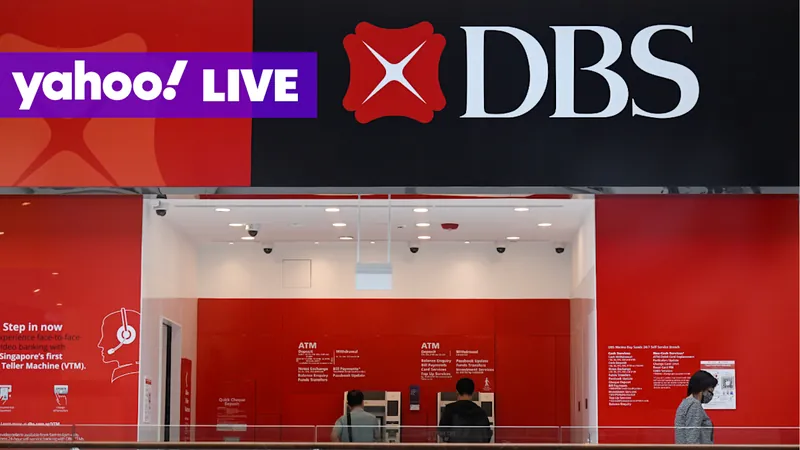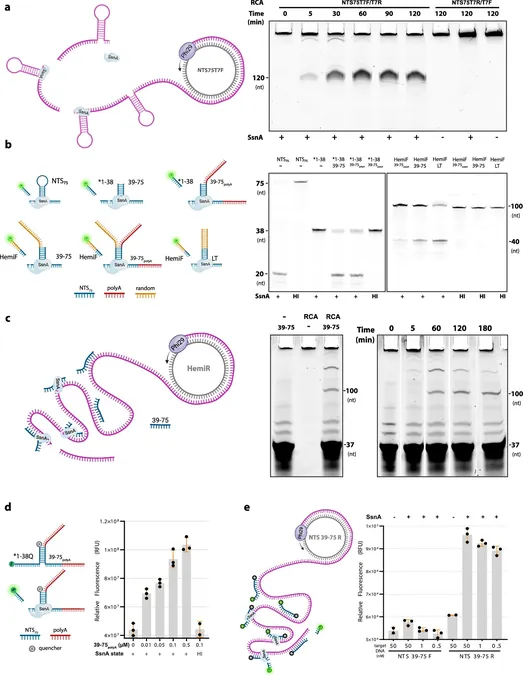
Major Ransomware Attack Compromises DBS and Bank of China Customer Data; Controversial Statements by Ex-NMP Calvin Cheng Spark Outcry in Singapore
2025-04-08
Author: Arjun
A significant ransomware attack on Toppan Next Tech (TNT) has raised alarms as sensitive customer data from DBS and the Bank of China (BoC) was compromised. DBS has reported that approximately 8,200 customers were affected, with stolen data including names, postal addresses, and loan documents related to DBS Vickers trading accounts and Cashline loans. The Bank of China confirmed that around 3,000 of its customers were also impacted by the breach.
The compromised documents were encrypted when sent to TNT, but it remains uncertain whether the attackers were able to decrypt this information. Fortunately, sensitive financial data such as login credentials were reportedly not exposed. In response to the incident, DBS has immediately halted all printing tasks with TNT and increased monitoring of affected accounts. Customer communication has become a priority, ensuring that those impacted are kept informed of developments.
The attack highlights the growing threat of cybersecurity breaches in the financial sector. The Cyber Security Agency (CSA) and the Monetary Authority of Singapore (MAS) are collaborating with the affected banks to assess the situation and conduct a thorough investigation. The MAS has called on DBS and Bank of China to put effective risk mitigation strategies in place and stressed the need for transparent communication with customers during this crisis. Additionally, the CSA has advised organizations to bolster their defenses against rising ransomware incidents, which pose a serious threat to business continuity.
In other news, a poll conducted by Yahoo Singapore reveals that the majority of Singaporeans are skeptical about the nation’s upcoming Budget 2025 adequately addressing the financial pressures caused by new U.S. tariffs. Of the 623 respondents, a staggering 87% expressed doubt that the budget would compensate for a 10% import tariff imposed by the United States, which forms part of a broader strategy to rectify trade imbalances with key partners. The government, while promising support, faces growing concerns from citizens already grappling with inflation and rising living costs.
Adding to the controversy in Singapore, ex-Nominated Member of Parliament (NMP) Calvin Cheng has come under fire for inflammatory remarks regarding pro-Palestinian activists. His Facebook post suggested relocating these activists to Gaza, which many deemed Islamophobic. Various organizations, including the Singapore Islamic Scholars and Religious Teachers Association (PERGAS), lamented Cheng's comments as harmful to Singapore’s multicultural societal fabric. Political leaders, including the Minister for Muslim Affairs and the Law and Home Affairs Minister, have distanced themselves from Cheng’s comments, affirming that such views do not reflect the broader sentiment of the community.
Cheng has responded to the backlash by claiming that his comments were misconstrued and indicating plans to pursue legal action against those misrepresenting his statements. He insists that his remarks were aimed solely at disruptive behavior, not at any particular group based on race or religion. However, the incident has ignited discussions around the need for more compassionate discourse in the face of global humanitarian crises.
This week has underscored the need for vigilance not only in the realms of cybersecurity but also in maintaining social harmony amid challenging global events. As Singapore navigates these turbulent waters, the resilience and unity of its citizens will be key in mitigating the impact of these challenges.




 Brasil (PT)
Brasil (PT)
 Canada (EN)
Canada (EN)
 Chile (ES)
Chile (ES)
 Česko (CS)
Česko (CS)
 대한민국 (KO)
대한민국 (KO)
 España (ES)
España (ES)
 France (FR)
France (FR)
 Hong Kong (EN)
Hong Kong (EN)
 Italia (IT)
Italia (IT)
 日本 (JA)
日本 (JA)
 Magyarország (HU)
Magyarország (HU)
 Norge (NO)
Norge (NO)
 Polska (PL)
Polska (PL)
 Schweiz (DE)
Schweiz (DE)
 Singapore (EN)
Singapore (EN)
 Sverige (SV)
Sverige (SV)
 Suomi (FI)
Suomi (FI)
 Türkiye (TR)
Türkiye (TR)
 الإمارات العربية المتحدة (AR)
الإمارات العربية المتحدة (AR)